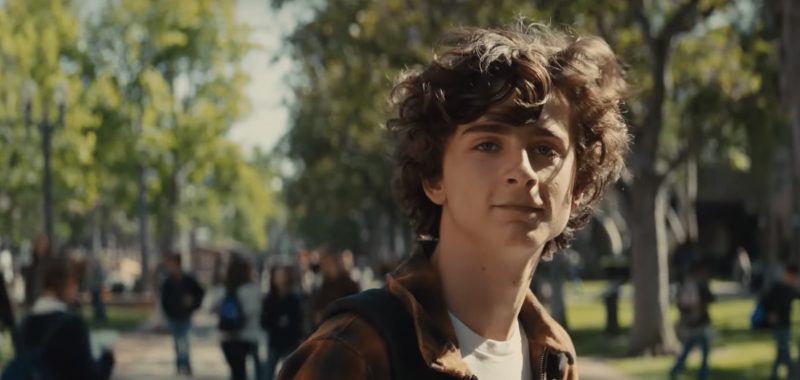
Content warning: This review discusses true accounts of drug use, addiction, and relapse.
“Beautiful Boy” is a film about a father’s journey through teenage son Nic’s addiction to crystal meth and his cyclical episodes of recovery and relapse. Based on a true story as it is told in two novels separately authored by father and son David and Nic Sheff, the movie is a grueling and emotionally taxing showcase of what addiction can do to a life pregnant with potential.
Although “Beautiful Boy” falls into many of the tropes of addiction films, it attempts to stave off the classic three-part model of addiction, relapse and recovery by following a nonlinear, episodic structure that juxtaposes early and sweet father-and-son moments with scenes of teenage and twenty-something Nic completely under the disease’s control. The episodic nature of the film eliminates the emotional coherency of a linear narrative and can instead feel like a test of mental endurance in some especially difficult to watch moments where there is no possible end in sight.
The film never ceases to impress visually — the Sheff’s home is stunning and secluded in the scenic countryside outside of San Francisco. The cinematography is well-thought out and adds to the acting’s emotional force. The earlier moments between young Nic and David are meaningful and provide reasoning for David’s naive trust in Nic even after more than one relapse has occurred.
However, the lead performances far upstage the stunning cinematography and visuals. Timotheé Chalamet’s performance as intelligent and emotionally manipulative Nic solidify him as an incredibly talented young actor. The film sees Nic through many stages of his addiction, and Chalamet shows the audience all of them in his chameleonic facial expressions and physicality.
Nic is skilled at revealing parts of his charming and seemingly loving self strategically, which keeps his hopeful father in the dark longer than the audience can be convinced. Through his most damning and disastrous actions, the audience can still see glimmers of Nic’s reluctance and guilt over the pain he is causing those around him. Chalamet’s tone transforms from feigned optimism and hopefulness to despair and unbridled anger in an on-screen moment.
Steve Carell’s performance as father David Sheff is also memorable, but one is left feeling disappointed with the slight shallowness of his character — the screenplay never allows David to be anything more than a good dad in bad circumstances.
Carell’s accompanying performance is joined by Maura Tierney and Amy Ryan who portray his wife and ex-wife respectively. Each gives very good performances and their interactions with Carell help to deepen his character a bit more, but disappointingly their roles do little more than sideline the leading father and son narrative. Notably, the film does not pass the Bechdel test, where two or more named women must discuss something other than a man.
Ultimately, “Beautiful Boy” is redeemed by the strength of its lead performances and the few new takes it offers to the genre of addiction films. It proves that love, financial resources and all manner of support are nothing in the face of a drug like crystal meth. Furthermore, it adds a new dimension to the addiction story in the form of David’s perspective. The film ponders how far a father’s love can reach when that love is not returned and is better given to those who can return it.
Parents and relatives of those who have struggled with addiction will feel especially heard by this film. The film is not afraid to portray the very real pleasurable moments of drug use in visceral ways, so I would warn recovering addicts against watching this film if such portrayals are difficult or triggering to watch.
Photo courtesy of Filmschoolrejects.com
